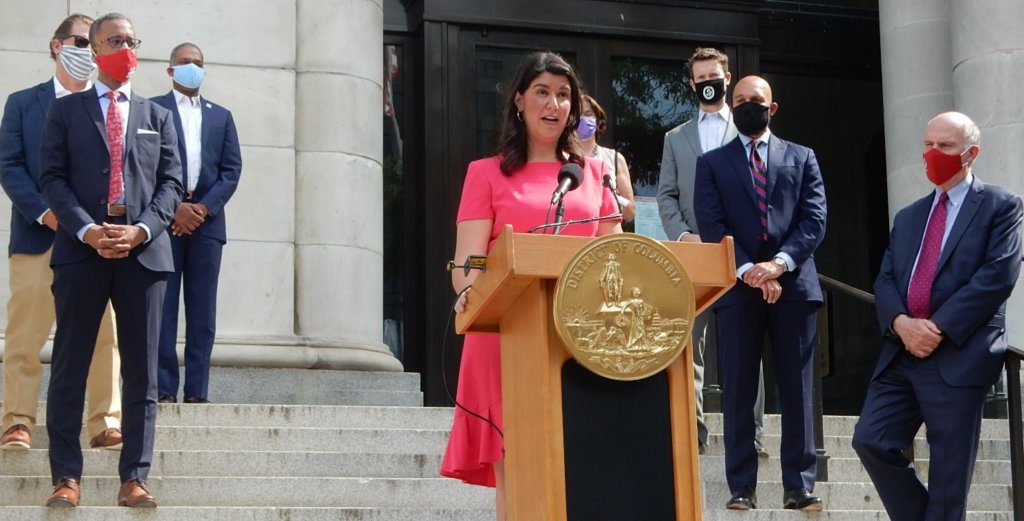Council Approves Tax Increases, Cuts to Police
By • July 13, 2020 0 1115

A lively preliminary budget hearing on July 7, ending with a unanimous vote of approval by the District Council of D.C.’s redone $16.7-billion fiscal 2021 budget, did not, for the most part, follow Mayor Muriel Bowser’s guidelines.
Against the mayor’s urging to hold off on tax increases until next year, the Council voted to raise an extra $63 million by increasing some business and other taxes, including a three-percent tax on all advertising.
The Council also approved cutting funding to the Metropolitan Police Department by $15 million, which could result in a decrease of about 200 officers. The funds would be redirected mainly to social services designated by the Council, including mental health assistance in schools, some $50 million for repairing public housing and $5 million for the cash assistance program for undocumented immigrant workers.
On July 4, Bowser wrote to D.C. lawmakers that it would be “foolhardy to raise taxes this year,” given the uncertainty of the economy. She said that she would make up an $800-million shortfall in revenue largely by tapping D.C.’s still substantial reserves and freezing salaries and hiring.
Council Chairman Phil Mendelson agreed. “Revenue projections are likely to shrink again when forecasters revise their estimates in late summer,” he said. “That will force the Council to revisit the budget and find new cuts or ways to boost revenue. The prudent thing is to wait and hold tax increases for that eventuality.” The Council will probably have to increase the unemployment insurance tax paid by employers, he noted.
But other Council members, including Brooke Pinto — the Democratic nominee for the Ward 2 seat, recently sworn in to serve out the remainder of Jack Evans’s term — voted unanimously for the new budget, though Pinto had run on a platform of practicality and reluctance to increase taxes. They approved a gas tax increase of 10 cents per gallon and an $11-million reduction in a tax break for technology companies, as well as budget amendments that lowered the threshold for imposing estate taxes from $5.6 million to $4 million.
In addition, a tax break for corporations was postponed. But the Council voted 8 to 5 to reject a tax increase on incomes higher than $250,000 proposed by member Charles Allen (D-Ward 6) — claimed by Pinto as a role model, incidentally.
Some Council members were concerned that the three-percent advertising tax could hurt small newspapers operating on thin margins. Rebecca Snyder, executive director of the MDDC Press Association; Hal Schild, president of the American Advertising Federation’s D.C. chapter; and Lisa Reynolds, executive manager of the Maryland D.C. Delaware Broadcasters Association, called the tax “devastating,“ writing that it “will drastically impact local media companies’ revenue streams and the ability of newspapers and broadcasters to serve as ‘first informers.’” Their statement continued: “Taxing advertising and advertising services will choke economic growth and create a domino effect. Ironically, less advertising — leading to fewer sales — could actually lead to reduced sales tax revenue and slow the District’s economic growth.”
The budget hearing, held virtually via Zoom, was variously described as harried and chaotic. Critics of the new taxes objected to their being passed with less than 24 hours’ notice and without an opportunity for public comment.
The final vote on the budget, which must be approved by the mayor, is expected later this month.

